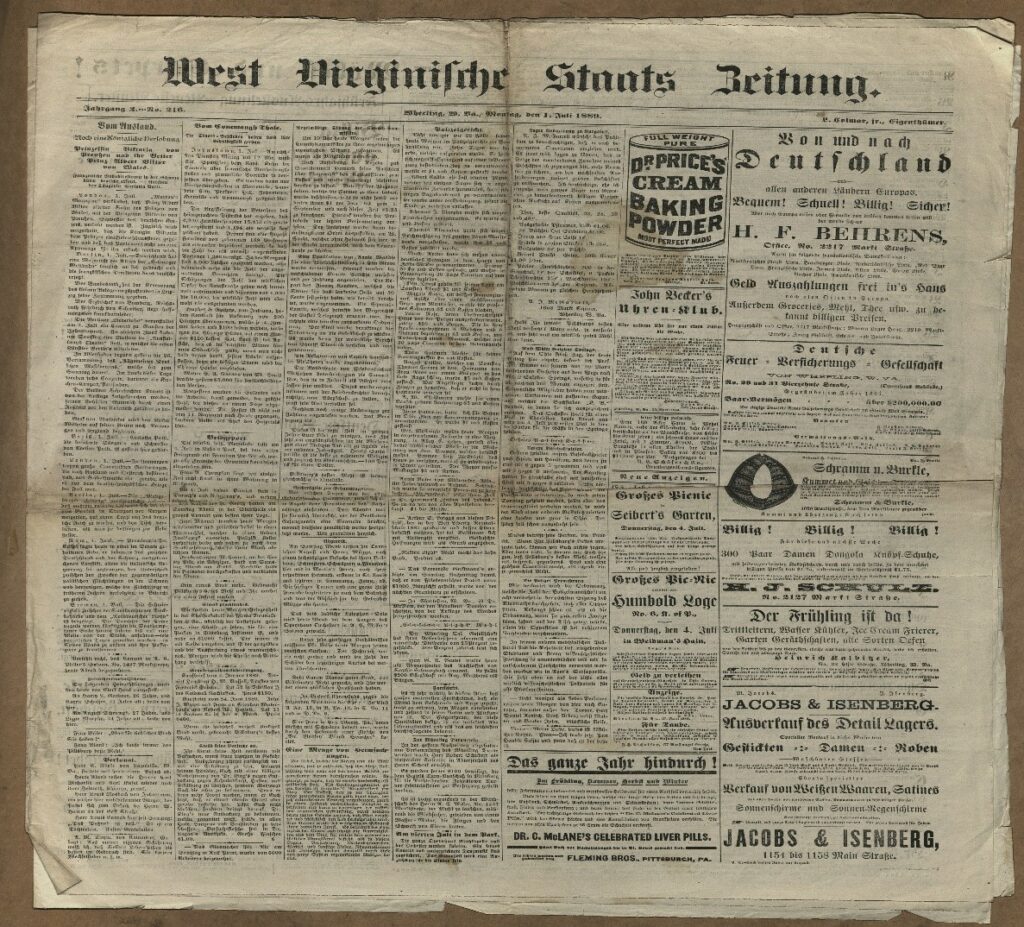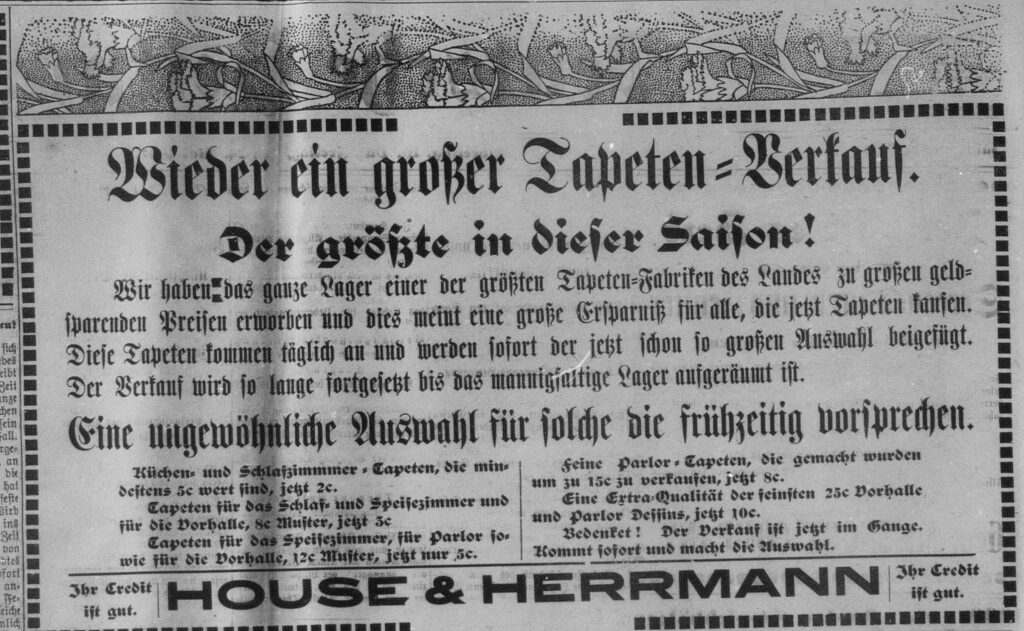Wheeling’s German Newspapers
Posted by Admin.April 11th, 2022
Written by WVU History Department doctoral student Jack Webster

The Deutsche Zeitung (literally German Newspaper) was a German language newspaper from Wheeling publishing under that name beginning in 1901. It was not the first German newspaper in the state. German language journalism in western Virginia precedes the Civil War with the Virginische Staats-Zeitung, (Virginia State Newspaper) 1848 – 1863, which became the West Virginische Staats-Zeitung following West Virginia statehood in 1863. Other German newspapers, namely Der Arbeiter-Freund (the Worker’s Friend), also had its start during the Civil War era.

The Deutsche Zeitung was not the first Deutsche Zeitung in the state. The previous paper by that name combined with the Wheelinger Volksblatt (the Wheeling People’s Paper), to form the West Virginische Staats-Zeitung in the 1880s. The West Virgische Staats-Zeitung was actually the precursor to the Deutsche Zeitung of 1901.
Surviving editions of the Deutsche Zeitung commemorate anniversaries, including one in 1906, and another sixtieth anniversary of German reporting in the region in 1910. The 1906 edition includes a list of the men who ran the newspaper, all German immigrants: Fidelis Riester, president, born in Wuerttemberg, who immigrated in 1869; Christian Steinmuetz, vice president, from the Rhineland, immigrated 1866; Constantin Bente, secretary, from Westphalia, immigrated 1879; Michael Kirchner, treasurer, from Franconia, immigrated 1867; and Jacob H.H. Beu, also from the Rhineland, a German Army veteran, immigrated 1881. Bente was the principal owner, editor and manager. All members of the board were involved with a variety of German-American civic societies in Wheeling, including the German American Central Bund, and organizations for Germans from particular regions, such as Bavaria and the Rhineland.
These special editions ran similar articles, including histories of German communities in the Ohio Country and of German language reporting in the state. They also include profiles about towns in West Virginia such as Morgantown and Charleston, as well as their major industries and points of interest, both natural and man-made. The centers of German-American community were the historic German Churches, which could be Catholic, Lutheran, or Reformed. These newspapers took pride in their identity as German-Americans: they date from around the Fourth of July, and report stories of German patriots from the American Revolution. One even claims that the tune of “Yankee Doodle” was a Hessian folk song! Each paper also features a page reporting events from German Central Europe, categorized by regions, such as East Prussia and Austria.

Papers like the Deutsche Zeitung not only expressed the voice and culture of German-Americans, they revealed the connections between these people and the Americans of other backgrounds. Each edition contains advertisements for translating services, and both German- and English-speaking entrepreneurs, politicians, and other public figures feature on their pages. Unfortunately, the Deutsche Zeitung appears to have met the same fate as other expressions of German culture from the early twentieth century, going out of publication in 1916. That same year, another German, Austin Brodoehl founded the West Virginia Patriot perhaps responding to a culture now hostile to Germans in the leadup to American intervention in the First World War.






June 3rd, 2023 at 8:39 pm
My 3g-grandfather, Johann Mathias Bursner, was the editor of the “Virginia Staats Zeitung” in the mid-1800s